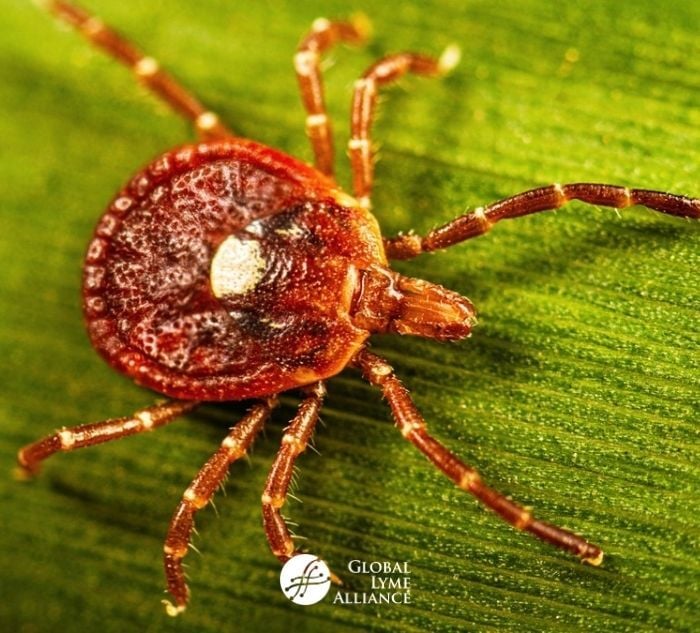
Learn the role of talk therapy in managing Lyme disease, its emotional impacts, and the importance of finding the right therapist for holistic healing.
When I was first sick with symptoms of Lyme disease, babesiosis, and ehrlichiosis in 1997—but not yet properly diagnosed—I frequently visited my college health center for on-and-off flu-like symptoms. I was routinely tested for mono, which was always negative. (Ironically, I did ultimately get mono years later, which slipped into chronic active Epstein-Barr virus and brought my tick-borne diseases out in full force, finally leading to an accurate diagnosis.) But at the time, when mono tests were negative, health center nurses decided my symptoms must be psychosomatic and suggested I see someone in counseling.
In those days, there was much greater stigma around mental health. Now more people understand that mental health is connected to physical health, and that mental wellness is something everyone needs. In 1997, talk therapy wasn’t talked about. I thought if I went to counseling, I would be giving in to the idea that my symptoms were “all in my head.” I was embarrassed and ashamed by this possibility.
I know now that going to therapy isn’t embarrassing or shameful. It’s brave and helpful, something that anyone can benefit from. Counseling in college probably would have helped me deal with the confusion, frustration, and yes, shame, that I felt about being constantly sick but having no answers as to why. Therapy probably could have supported me through the various emotions and experiences that many young adults face.
While therapy at that time would have helped me emotionally, it wouldn’t have helped me physically, because my symptoms weren’t psychosomatic imaginings of illness, nor were they markers of pre-existing depression or anxiety. My fever, fatigue, hypoglycemia, joint pain, and headaches were caused by tick-borne infections. Without treatment, those infections eventually crossed my blood-brain barrier and attacked my nervous system. In addition to a host of neurological symptoms including brain fog, sleep disturbances, and burning extremities, neurological Lyme disease did, ironically, also cause anxiety and depression.
The important word there is “cause.” Depression and anxiety did not cause my physical symptoms; they were effects of my physical illnesses.
And I don’t just mean that having tick-borne illness made me feel worried and sad, though of course it did, as it would for anyone sidelined by prolonged illness. Lyme disease can actually cause psychiatric illness, as demonstrated by a GLA-funded study by Dr. Michael Eriksen Benros of Copenhagen University Hospital and Dr. Brian Fallon of Columbia University. Data collected from almost 7 million people over 22 years showed an increased risk of psychiatric illness in Lyme disease patients; with a single diagnosis of Lyme disease, there is a 24% increased risk of any mental disorder. Two or more episodes of Lyme disease increase that risk to 79%, with the highest risk for people ages 20-29—exactly the age group in which I fell when I was acutely ill.
I did start seeing a therapist during those lowest years of illness. In fact, I saw two: one who I try to block out, and one who was a critical member of the medical team that helped me thrive in the context of chronic illness. The first mental health provider I saw was a psychiatrist, recommended by a primary care physician who, like the health care nurses before him, sent me off to counseling when he couldn’t find anything else wrong with me.
The psychiatrist was a stodgy old woman whose office was as stuffy as she. As I detail in my forthcoming memoir, One Tick Stopped the Clock, the only acknowledgement this medical provider made of my physical illness was to ask me if I had a living will. She then urged me to get back to work, “as if the pale, sleepy-eyed young woman in front of her was a robust, rosy-cheeked, insolent child who just needed to be scolded into behaving.” She recommended I do a workbook for people with social anxiety and got angry with me when I explained I was an extrovert who loved socializing but was too sick to do so.
I share this anecdote to make an important point: not all mental health providers are good providers. Or, to be more generous, not all mental health providers are the right fit for their patients. I feel strongly that talk therapy is a crucial part of recovery from tick-borne illness. Friends and family who “get it” can offer much-needed care. They can listen, they can sympathize, they can run errands for you and go to doctor’s appointment with you and give you hugs. Social support is critical medicine. But a therapist can offer objective, professional perspective that is invaluable. A good therapist can help you unpack patterns in your own thinking or behaviors that may be roadblocks to your wellness. They can validate you when others in your life can’t or won’t. They can guide you to look at past experiences that may affect your current reaction to illness. They can assist you in reframing the “restrictions” brought on by illness and give you a safe space to mourn your previous life and craft a new one that allows your core self to thrive even when your health has other plans.
I know this because I found this type of therapist after I made the choice to stop seeing the psychiatrist. No matter how sick and tired you are, you as the patient have the agency to make choices about your medical care, including switching providers. You can try out different therapists, doing a few appointments with each until you find the right fit. In fact, therapists are used to people “interviewing” them, and a good therapist will treat an intake like a first “date” to determine if you’re a good match. If you’re not, a good therapist will help you find someone who is. (If only dating worked that way!)
As I’ve continued in remission, talk therapy has remained an important tool to rely on in times of stress. Talk therapy is not a crutch, nor it is it meant to make you wallow in the past. It is meant to help you understand the past in a way that enables you to best handle the present while designing a bright future. As an adjunct therapy to medication, it continues to play an essential role in my overall health, both mental and physical.
If you’re ready to start therapy but not sure where to begin, call your insurance company to find out what mental health services they cover (many have to follow the federal parity law that requires insurance companies to provide the same coverage for mental health services as they do for physical health). Most insurance companies have search engines that allow you to find in-network providers, including those who specialize in chronic illness. You can also ask your Lyme Literate Medical Doctor (LLMD) or people in your Lyme support group for referrals, or search Psychology Today or the American Psychological Association’s Psychologist Locator. It may take some time to find a good therapist with availability, but I promise you it’s worth the effort.
***

Jennifer Crystal
Writer
Opinions expressed by contributors are their own. Jennifer Crystal is a writer and educator in Boston. Her work has appeared in local and national publications including Harvard Health Publishing and The Boston Globe. As a GLA columnist for over six years, her work on GLA.org has received mention in publications such as The New Yorker, weatherchannel.com, CQ Researcher, and ProHealth.com. Jennifer is a patient advocate who has dealt with chronic illness, including Lyme and other tick-borne infections. Her memoir, One Tick Stopped the Clock, was published by Legacy Book Press in 2024. Ten percent of proceeds from the book will go to Global Lyme Alliance. Contact her via email below.







